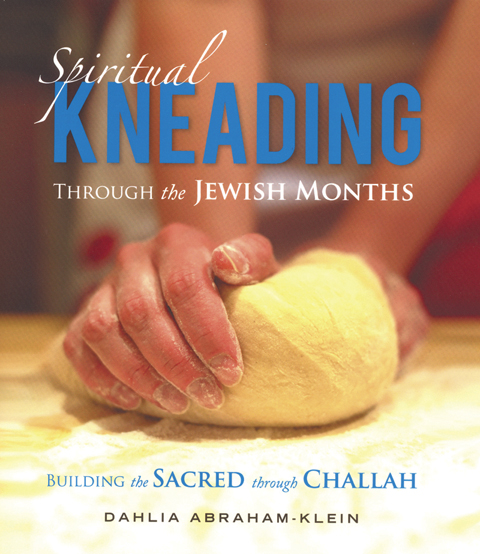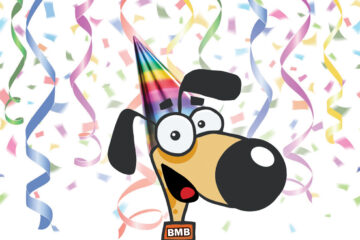Holiness in Challah making

Spiritual Kneading Through the Jewish Months: Building the Sacred through Challah
By Dahlia Abraham-Klein • Shamashi Press • 166 Pages • $24.95
Review By Etta King, Jewish Women’s Archive
Exclamations of pride and wonder filled the room when we filed into the kitchen and found that the dough we had carefully mixed and kneaded had successfully grown into two pillowy, pungent loaves.
Pulling off an olive-sized piece of dough, I recited the blessing, “Blessed are you, God, who has sanctified us with your commandments and commanded us to separate challah.” Laughing and singing, we split the dough and began forming it into loaves.
Each month, I gather with other young Jewish women from the Boston area at Moishe Kavod House (MKH) for the Rosh Chodesh/New Moon gathering. Rosh Chodesh (Hebrew for head of the month) is a holiday that marks the beginning of the new Jewish month and corresponds with the beginning of the lunar cycle.
On Rosh Chodesh days, I get up at 6 a.m., go to the gym, head to work full of meetings, phone calls and projects, and then trek up the hill to MKH. As we light the candles to begin our monthly ritual (a tradition drawn from ancient Israel when the new month was signaled by lighting a bonfire on a hill so the next town could see), I find that my body relaxes and I settle into a feeling of comfort and reflectiveness.

I have long found the process of cooking and baking to be centering, even meditative, though if you ask my partner Ryan about this, he will tell you that my frustrated yelling and tendency to burn myself on hot objects suggests otherwise.
Meditative or not, I would not quite describe my experiences in my kitchen as holy. Yet when I picked up Dahlia Abraham-Klein’s new cookbook-meets-curriculum, Spiritual Kneading Through the Jewish Months: Building the Sacred Through Challah, I found a language and framework for lifting up the physical actions I know and love — sifting, mixing, kneading — to give them a sacred, spiritual connection beyond myself to a larger whole.
The book has a rich, informative introduction to the halachic (according to Jewish law) and traditional guidelines for mixing, separating, and baking challah. Spiritual Kneading serves as a souped-up how-to guide that not only covers the ingredients — what to buy, why you should buy certain things — but also the process: what to do, when to do it, and what to say.
Spiritual Kneading doesn’t stop there. It also includes readings and discussion questions for baking or Rosh Chodesh groups to study together while the dough rises, suggestions and guidelines for meditation during the kneading process, and intentions for holding at the center of one’s mind while the challah dough is being formed into a loaf.
While some of the recipes are not to my taste (I don’t like rose water, a prominent flavor ingredient in the recipe for Adar) and some of the questions aren’t what I would choose to discuss, each month’s resources are adaptable, interesting, and different. The book serves as a wonderful companion for individuals and groups interested in learning how to bake challah or develop a new spiritual practice that is deeply rooted in religious and cultural tradition without feeling exclusive or heavy handed, especially for the less- or differently-observant Jews among us. It is also easy to follow and use. Many first-time challah makers in our group affirmed this, and as an educator, I felt the guidelines for leading discussions were simple and complete enough for anyone to follow.
This morning, as I prepared to do my push-ups at the gym, I noticed that my arms were already fatigued. I recalled this line from Spiritual Kneading: “When we knead dough properly, we feel it in our arms. We shape the dough, we push and pull it, we flip it upside down; we work with it until it yields to us and becomes elastic.”
I remembered the looks of pride I saw on my friends’ faces, our laughter and singing, and our discussions of how — like Esther in the story of Purim — we each have the ability to take and mold the ingredients of our life experiences to become the people we want and strive to be.
When the candles were blown out and each loaf had been carefully formed, placed in a bowl, and covered for safe transport to an oven at home, we paused and said the Shehechiyanu prayer, giving thanks for being together to celebrate, participate in, and witness the gathering. Smiling, we lifted our loaves high, wishing one another a month of strength, renewal, warmth, support, and said “chodesh tov,” have a good month.
Etta King is the education program manager at the Jewish Women’s Archive (jwa.org), in Brookline, Mass.
To read the complete July 2015 Dayton Jewish Observer, click here.





